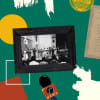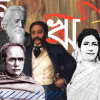Let’s not interpret old media through a modern lens

It is easy to scoff at the characters of a Jane Austen novel who happen to be whiling away their time drinking tea and taking care of estates in this day and age. Many people refuse to read Hemingway because of his portrayal of women as crude imaginings of what men believe women should be like. It is rare to find a Hitchcock film that does not show its female lead as being entirely encapsulated in the world of the male lead. However, because of these shortcomings, which are visible to us largely due to our modern sensibilities, should these works of art be abandoned altogether?
A book written in the 1800s or a movie from the 1940s will obviously depict things differently as opposed to how we might perceive them in today's context. But this does not mean that such forms of media are beneath being a source of entertainment for us.
If we hold our modern perspective and our sociocultural beliefs to the same rigorous standards, it is almost certain that we would come to hate every product of the past. Even if we could somehow get past these inhibitions, our discomfort regarding the outdated ways of thinking means that its value will depreciate for us. Characters, incidents, and the product itself will mean less to the audience. It will seem much shallower than it really is.
Historical backdrop and our understanding of the relevant historical backdrop are important when we try to study a material or even enjoy it. Jane Austen wrote about the English society as she witnessed it around her during that period. Hemingway's perspective on women was coloured by his own personal experiences. And while his view of them, in my opinion, should not be lauded, it resonated with the sentiments of the majority during that period of time, leading him to attain the recognition that he did.
Such beliefs aligned with the rest of society at the time and were deemed acceptable. It is only through understanding the society's views during that period that we can enjoy these forms of media. Although, we might do so with a grain of salt. Furthermore, through our consumption, we can receive a better idea of the evolution of sociocultural dynamics and popular media itself.
However, this does not mean we should not question the dubious qualities of art from the past. It is important that it is made very clear that certain practices are outdated.
Studying the impact of old media requires sincerity and the ability to distinguish between what was widely prevalent at the time of inception of said media, and what is widely prevalent today. The interpretation of old material, thus, presents a fallacy of sorts. On one hand, lies our instinct to disregard anything that goes against our beliefs, and on the other, is the want to do justice by the material. And the line between the two is very thin.
Zaima is a struggling student, a failed guitarist and a poet in need of better poetic ideas. Send her your sympathies at [email protected]

 For all latest news, follow The Daily Star's Google News channel.
For all latest news, follow The Daily Star's Google News channel. 








Comments